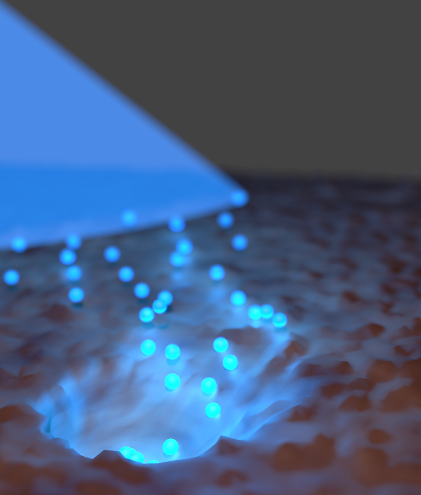Processing Light
When a material or molecule interacts with light, the attosecond and longer response determines if energy is stored, converted, or re-radiated.
Single Cycle Spectroscopy
Single cycle visible and near-infrared pulses are necessary for efficient high-harmonic generation. Using the attosecond XUV or single-cycle pulse, the electron density's temporal response to a photoexcited electron-hole pair can be measured. This screening / many-body state build up time is the fundamental time limit for electronic switching and sensing.
Transient XUV and X-Ray Spectroscopy
Extreme ultraviolet (XUV) to soft x-ray pulses are created by high harmonic generation. The change in the element specific X-ray edge is used to measure the electron energy, hole energy, and phonon or vibrational bath following photoexcitation. This allows coupled electronic-structural dynamics, as well as charge and heat transfer, to be measured in junctions.
Few Photon, Few fs, Entangled Photon Spectroscopy
The temporal dynamics of a material can be measured through the modulation of entangled photons. Equilibrium and fluctuation driven processes, such as a chemical reaction, are directly measured with single-photon per mode or higher excitation. The technique inherently measures how chemical or biological systems can create and modulate entangled photons on the timescale of their dephasing.
Applications
1. Renewable Energy Systems: The role of polarons in photocatalysis and oxygen vacancies in hole transport are two examples of what the spectroscopy has already discovered. Similarly, two inexpensive solar and thermal energy conversion devices are being developed with a start-up company based on spectroscopic knowledge.
2. Manipulating Entangled Photons:
We are exploring how the stimuli-response relationships of chemical and biological systems can be incorporated in quantum computing, information, or bio-sensing applications.







